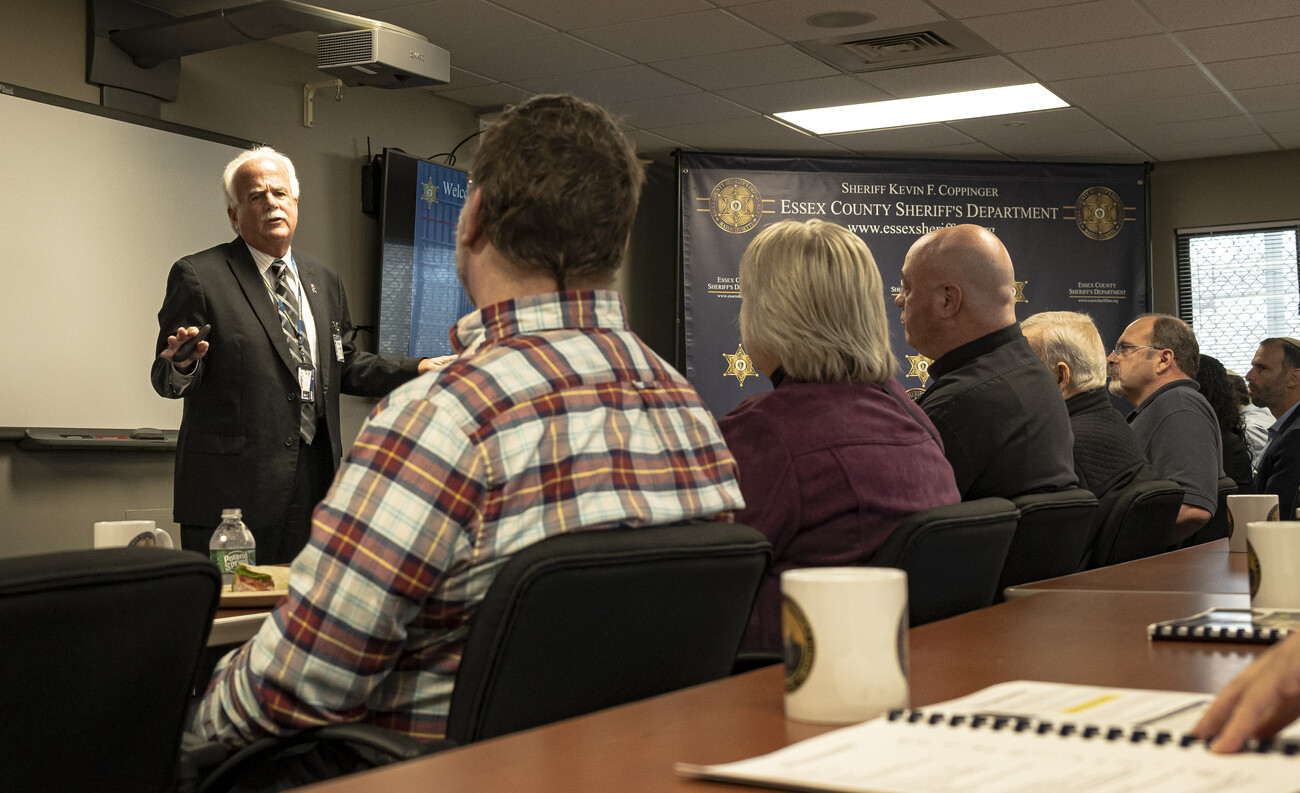MIDDLETON— Around 30 different members of the local clergy and other religious leaders were at Middleton House of Correction on Friday to talk about recidivism, or the tendency of a convicted criminal to reoffend.
The event was hosted by Essex County Sheriff Kevin Coppinger, who spoke about the need for community and religious organizations to join in efforts to prevent inmate recidivism.
Coppinger, who served on the Lynn Police Department for 33 years, including as chief from 2009 until he was elected Essex Sheriff in 2017, said issues with recidivism were something that he had often been frustrated with prior to entering his current role.
“In the old days…they let them serve their time, serve out their sentence and then let them go,” Coppinger said. “That’s one of the reasons I ran for sheriff. You would just see the same people coming back.”
Coppinger discussed many of the issues inmates faced while incarcerated, including violent behavior and mental health issues, but also the difficulties they experienced upon returning to the civilian population.
“A lot of folks will leave here and go back to the community with no resources,” Coppinger said. “They’re going back to a life of crime and coming back in.”
According to the Essex County Sheriff’s Department 2022 annual report, the department had a daily average population of just under 1,100 people across the department’s three facilities, with the Middleton House of Correction’s one-year recidivism rate at around 27%.
Coppinger touted the department’s programs like Opening Avenues for Reentry Success, Correctional Alternatives for Reentry and the Supporting Transitions and Reentry (STAR), which present individuals with various resources for substance abuse, mental health care, work training and educational opportunities.
“We have a captive audience,” he said. “Let’s do what we can while they are here.”
STAR has been implemented in Lawrence and Lynn, and has even been used to help avert likely offenders from entering the criminal justice system altogether, according to Coppinger.
“(It’s) before the 9-1-1 call, before the cruisers show up and the handcuffs come out,” Coppinger said. “It’s based on partnerships in the communities.”
Coppinger said local religious leaders could help with the department’s programming, in and outside of their facilities, to be sure released inmates continue on the path toward staying out of prison after their sentences end.
“Just because we’re the jail and the house of corrections, this does not fall solely on our shoulders,” Coppinger said. “It takes a community.”
In an appeal, Coppinger said clergy members’ role in the community makes them ideal partners for the efforts to support former convicts. He stressed that his department was open to any collaboration with religious leaders from all faiths that could provide important guidance for those reentering their communities.
“You have resources and you can help people,” Coppinger said. “A lot of guys find religion inside the jail, but they also need that mentor.”

